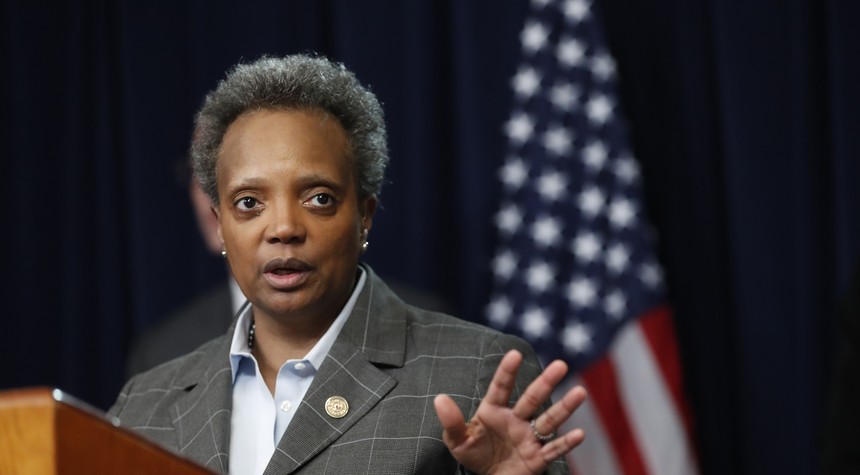CNN: Do Gun buybacks reduce violent crime? Er…
CNN:
Do gun buybacks reduce violent crime? Er ...

Not really, no. And it really doesn’t take “experts” to figure out why, but give CNN credit for asking them and reporting the obvious answer. A fundraising campaign by Lori Lightfoot to launch yet another firearms buyback campaign in Chicago prompted the question as to why the city remains as violent as it is despite a string of such programs.
Want to guess what the problem is? Oh, let’s not always see the same hands …
Chicago officials annually take in hundreds of guns through buyback programs. But decades of research shows such programs don’t reduce gun violence, in large part because they don’t result in guns being taken from people who aren’t supposed to have them. One recent study found “no evidence that (gun buyback programs) reduce suicides or homicides where a firearm was involved.”These types of programs are common in cities across America, and Chicago’s goal is ambitious compared to other programs. Long Beach, California, police took in 280 guns at an event in September. More than 250 were turned in at an event last summer in Desoto, Texas. Police in Albany, Georgia, collected 40 this way last spring.“It’s good theater. But it’s not helping deal with gangs and drug dealers and everyone else using the guns,” said Joseph Giacalone, retired NYPD sergeant and current professor at John Jay College.
There are a number of reasons why these programs produce no substantial impact on violence. First off, they don’t deal with the real issues that produce violent environments — poverty, the breakdown of the family, lack of effective and comprehensive law enforcement, and population density among them. Guns aren’t causing the violence; they’re just a tool for violent people, as well as tools for protection from those violent people.
Mainly, though, buyback programs fail because the people most committed to violence aren’t interested in selling the guns back to the cities. The same is likely true for firearms possessors who contemplate committing suicide. If this latest study is correct, that data undermines yet another gun-control argument that possession of a gun increases the risk of suicide. It seems rather obvious, almost like common sense, that the people most likely to participate in gun buybacks are those least connected to either violence or a need for self-protection.
It’s great that we have studies to confirm this, even apart from common sense. But it doesn’t take an expert, a statistician, or a genius to see the flaws in the “buyback program” strategy. Especially after this many iterations of those efforts.
So why spend millions of dollars on them, year in and year out, when the results in Chicago speak for themselves? Even CNN’s willing to admit what a waste of time and effort these are, as well as a distraction from the real issues of violence. Politicians like Lightfoot keep them going because they provide cheap political theater, as Giacalone explains:
“These things are dog-and-pony shows … Look, a million dollars to do all this stuff, it’s not going to help violence in Chicago or anywhere else one iota. It’s feel-good, it’s to make it look like politicians are going to do something, but it means absolutely nothing.”
Gun buyback programs make great cover for pusillanimous politicians. That’s the outer limit of their effectiveness, however, and now reality is beginning to dawn even on the media that cheered these empty gestures.




Post a Comment